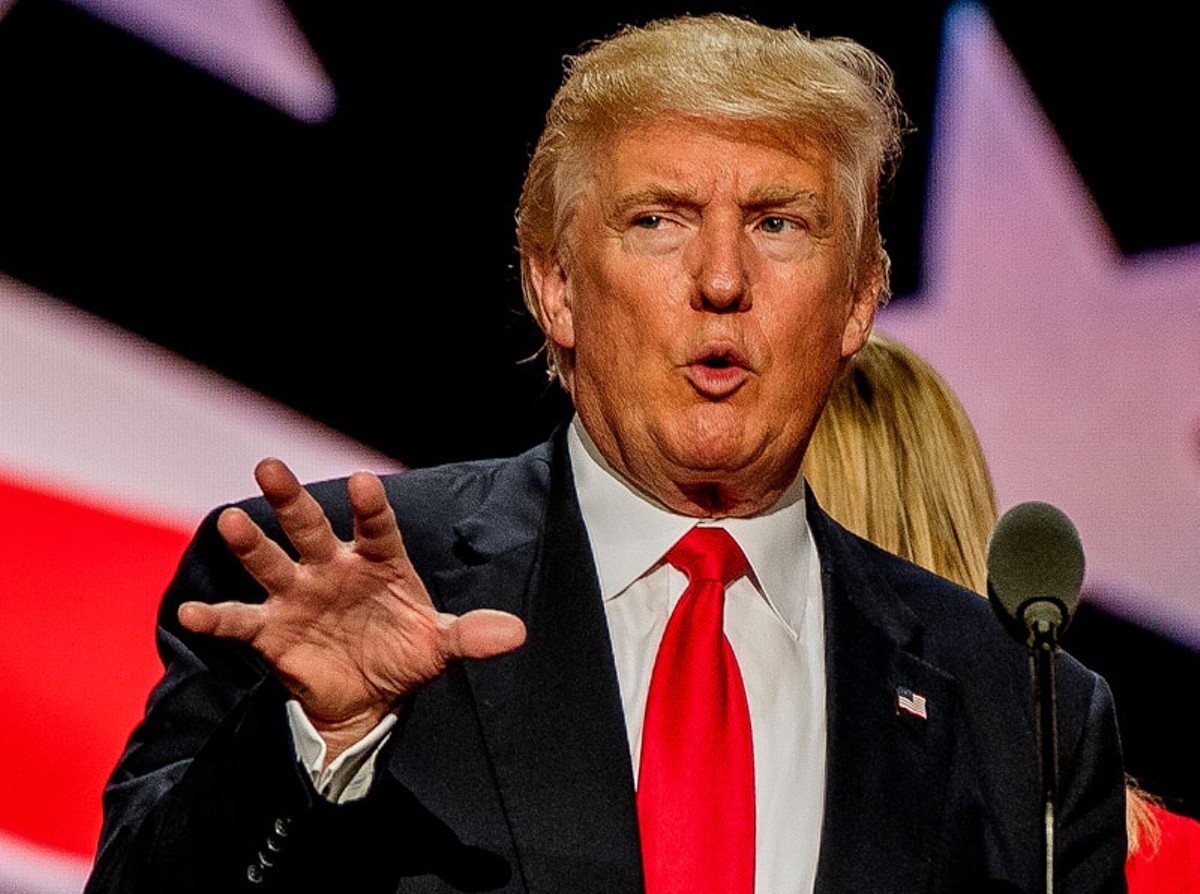For a fleeting optimistic moment last Thursday, it looked like the institutions of the U.S. government might actually be up to the task of keeping Donald Trump's menace in check.
It was a small victory, but meaningful nonetheless: U.S. Sen. Tim Scott of South Carolina, that chamber's only black Republican, announced that he wouldn't vote to confirm Thomas Farr to the U.S. District Court in Eastern North Carolina. And with that, Farr's nomination was dead.
In a saner world — a world in which a white nationalist reality TV star wasn't president and the U.S. Senate wasn't stacked with quiescent quislings — it would have never been born. After all, Farr has spent decades working to suppress black votes. He was the lead campaign attorney for the unrepentant segregationist senator Jesse Helms. In 1990, the Helms' campaign mailed out more than 100,000 postcards threatening black residents with prison if they voted; there's also evidence that Farr lied to the Senate Judiciary Committee last year about that postcard effort. Years later, North Carolina's GOP-controlled legislature hired Farr to defend its unconstitutional racial gerrymanders and a voter ID law that a federal court said targeted African-Americans "with almost surgical precision."
In the end, decency prevailed, albeit barely.
Just a few hours later, however, that fleeting optimistic moment evaporated — coincidentally, another North Carolina story did it — when news broke that Immigration and Customs Enforcement had deported a man named Samuel Oliver-Bruno.
There are two things that make Oliver-Bruno's deportation so infuriating. The first is the circumstance in which it happened: In short, he was entrapped by the government's duplicity, and for no good reason. For the last year, Oliver-Bruno had been seeking sanctuary inside a church. Immigration officials told him that, for his in-process asylum claim to proceed, they needed to record biometric information. When he showed up, ICE's goons literally tackled and arrested him, and days later he was sent back to Mexico.
The second is Oliver-Bruno's life story, which illustrates how callous and fundamentally capricious our immigration system is and has become under Trump. Oliver-Bruno lived in North Carolina for two decades, but returned to Mexico in 2011 to care for his ailing father. A few years later, his wife became gravely ill and flew to the U.S. for a life-saving operation. When Oliver-Bruno tried to join her, he was detained by the Border Patrol, which gave him a stay of removal on account of his wife's condition and released him with a work permit and driver's license.
Then, a new president took office. And last year, when Oliver-Bruno went to get his permit renewed, he was told that he now had an active order of deportation. Not wanting to leave his still-ill wife or American-born child behind, he entered sanctuary in a Durham church, and didn't leave until ICE conned him. Officials in Durham and members of North Carolina's congressional delegation begged ICE not to deport him, to no avail.
Cruelty — pointless, mean, racist — won the day. There was nothing a unified chorus of residents and elected officials could do to stop it, a reminder of the power invested in even this most malignant of presidencies.
By the next morning, it was becoming clear that the American system is quickly moving toward another stress test, this one bigger, more existential: Can our institutions provide a bulwark against a president desperate to hide his crimes?
That the Trump campaign colluded with Russian agents is now apparent. So too is the reality that the president repeatedly lied to the American public about his business relationships with Russia — and possibly to Special Counsel Robert Mueller as well. The plea agreement with former Trump fixer Michael Cohen, which hinted that Mueller has evidence of extensive communications between the Kremlin and the Trump Organization, followed a filing — probably not coincidentally made shortly after Trump submitted his written answers to Mueller's questions — in which Mueller voided former Trump campaign manager Paul Manafort's plea agreement, accusing him of lying to the FBI, which itself comes amid a wave of reports that conspiracy theorist Jerome Corsi and Trump buddy Roger Stone are about to be indicted, and speculation that Donald Trump Jr. could be next.
By all appearances, the walls are closing in. Trump won't take this lying down, of course. He has already installed a lackey as acting attorney general, has a compliant Senate majority, and has a full-on right-wing propaganda mill willing to distort and distract and outright lie to serve the president's needs.
This will be the defining battle of the next six months — and perhaps the next six decades. Between the Mueller investigation and the deluge of subpoenas sure to come from the newly Democratic House, it's possible we'll see a mass of evidence not just of obstruction or even collusion, but also campaign finance fraud (e.g., conspiring to pay off Stormy Daniels) and who knows what in Trump's business dealings.
If this evidence emerges and Trump escapes accountability regardless, then America will have failed its most important stress test since at least Nixon, perhaps since the Civil War. A corrupt president will have prevailed over a system designed to ensure that wouldn't happen.
That possibility — or maybe probability — would have implications for long after Donald Trump becomes worm food.
Stay on top of Detroit news and views. Sign up for our weekly issue newsletter delivered each Wednesday.







